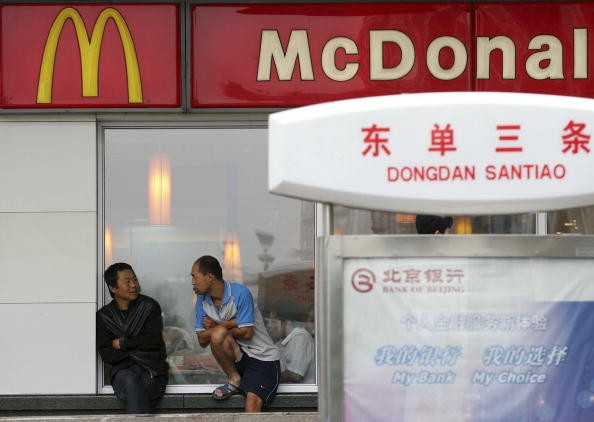Yum Brands Inc has announced plans to separate its China unit, which will get an investment totaling $460 million from Beijing-based private equity firm Primavera Capital Group and online payment services provider Ant Financial Services Group after its spinoff from Yum, according to a report from the Global Times news portal on Monday.
The transaction is expected to be completed by the end of October, with Yum China to start trading independently from the New York Stock Exchange on Nov. 1, Yum Brands posted on its website on Friday.
On the same day, Reuters reported that U.S.-based private equity firm Carlyle Group and global private investment firm TPG Capital have partnered with two Chinese companies in a bid for McDonald's business in the Chinese mainland and Hong Kong with investment estimated to be worth $2 billion to $3 billion.
Ma Wenfeng, a senior analyst at Beijing Orient Agribusiness Consultant, attributed the sell-off by the fast food giants to weak performances in China.
KFC's second-quarter sales in China rose just 3 percent year-on-year, while Pizza Hut's sales fell 11 percent from the year earlier, according to Yum's results released in July.
The rise of traditional Chinese fast food restaurants and changes in dining preferences by consumers have caused the position of Western fast food outlets to decline in recent years, according to experts.
Traditional fast food is in line with the eating habits of Chinese customers, Ma said, adding that Chinese fast food meals are seen as healthier than their Western counterparts.
Despite efforts to design products that cater to Chinese tastes, Western items such as hamburgers are still considered junk food, according to a report from the Beijing Youth Daily.
"However, I think domestic companies look favorably upon the prospects of Yum China and aim to optimize their own business structures by investing in the fast-food giant," said Liu Jianying, an associate research fellow at the Chinese Academy of International Trade and Economic Cooperation.
The management experience, distribution channels, and large client bases of Western fast food brands still prove attractive to local firms that want to enter the fast food industry, she explained.
KFC opened its first restaurant in mainland China in 1978. As of June 11 this year, there are 5,039 KFC outlets in China, data from Yum's second-quarter report showed.
McDonald's, which entered China in 1990, now has more than 2,200 restaurants in China as of 2015, according to data from McDonald's.
"We have long admired the Yum China business and are looking forward to collaborating with the board and management to realize the company's full potential," said Hu Zuliu, founder of Primavera, following Yum's announcement.
"Through this collaboration, we aim to help Yum China provide world-class mobile payment services for tens of millions of customers across its brands," said Jing Xiandong, president of Ant Financial Services Group.
"These services include hassle-free Alipay for customers to help shorten queues at the cashier as well as membership solutions for Yum China designed to help manage customer relations and promotions."



























